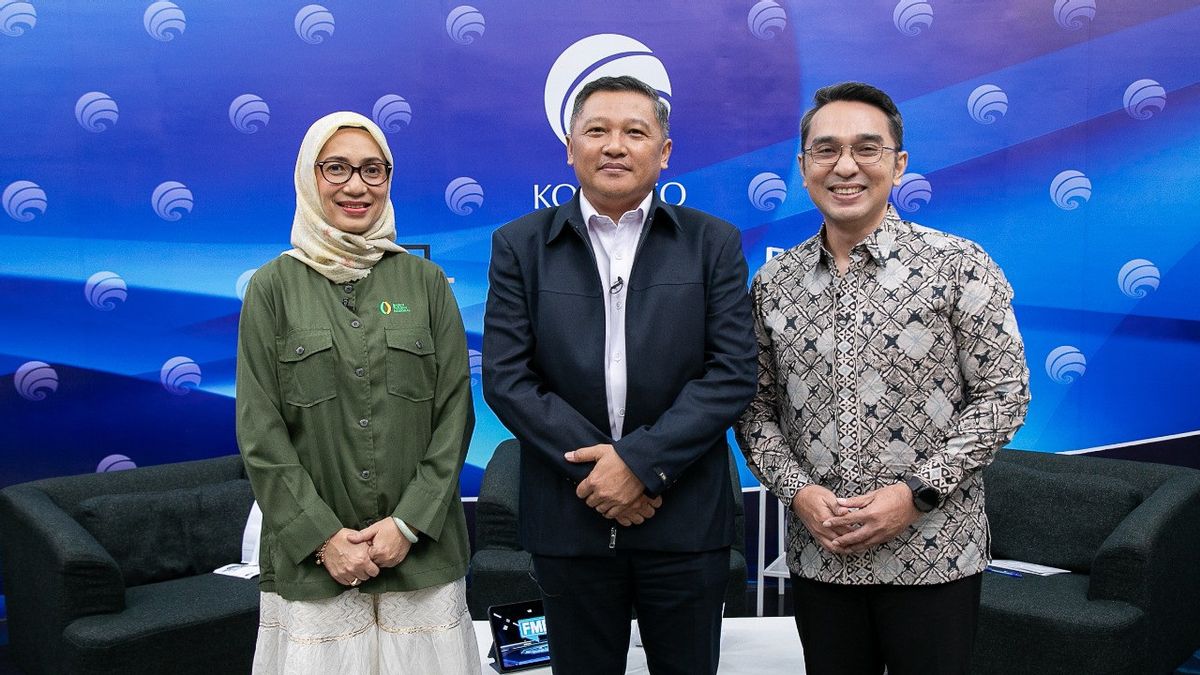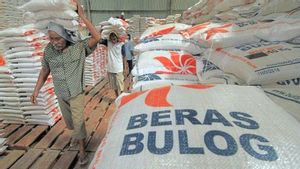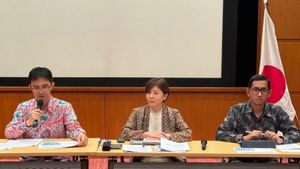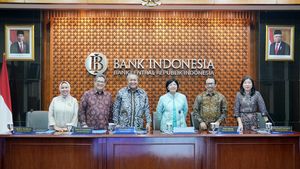JAKARTA - In order to ensure security and comfort during the Eid celebration, the Indonesian government has taken several strategic steps. This effort is carried out by minimizing the potential for extreme weather to maintain food price stability.
Deputy for Meteorology of the Meteorology, Climatology and Geophysics Agency (BMKG), Guswanto explained that the weather modification technique was carried out to minimize extreme weather conditions during Lebaran. This is because his party predicts that the weather a week before Eid 2024 will be dominated by light and moderate rain, where moderate rain can potentially become extreme weather.
"The potential for extreme weather is still there, especially in several areas such as West Java, West Kalimantan, Central Kalimantan, South Sulawesi, and Papua," he said at the Dialogue of the 9th Merdeka Barat Forum (FMB9) with the theme 'Safe Eid, Cheerful Homecoming Full of Meaning', Monday 1 April.
According to him, flooding in Semarang, Demak, Kudus, and Pati in March 2024 is a reminder that extreme weather is still a threat, especially before Lebaran. BMKG has also detected tropical cyclone seeds and intertropic convergence that cause high rainfall in the region.
In addition, other factors such as inadequate water building infrastructure and the average height of the coastal areas of Semarang which are below 0 meters above sea level (masl) also exacerbate the situation.
He continued, to anticipate this, BMKG has taken several steps. Starting from continuously monitoring weather conditions, providing extreme weather early warnings, to implementing Weather Modification Technology (TMC) in vulnerable areas.
In addition, BMKG has also increased the preparedness of posts throughout Indonesia. The public is advised to always monitor the latest weather information from BMKG so that they can prepare themselves properly.
Meanwhile, the National Food Agency (Bapanas) ensures that food availability is safe and evenly distributed throughout Indonesia ahead of and during Eid. The Director of Food Distribution & Reserves of the National Food Agency (Bapanas), Rachmi Widiriani, highlighted the government's steps in ensuring equitable food availability and stable prices ahead of the Eid celebration.
"In terms of food distribution, food availability is not centered at one point. Badanas is working with the Ministry of Transportation to optimize the use of the Sea Toll Road since 2023," he explained.
He also ensured that the price of medium rice began to slope ahead of Eid. Harvests that will come in April are expected to increase stock and lower prices.
He added that forums between heads of provincial and district/city offices play an important role in ensuring information on production areas and consumers. Distribution facilitation helps move foodstuffs from producers to consumers.
SEE ALSO:
Badanas also provides storage facilities by building ABF (Air Blast Freezer) and Cold Storage at 30 points to extend the shelf life of foodstuffs.
Not only that, Rachmi continued, the Government will also continue the operation of the Cheap Market by distributing SPHP Rice (Food Price Supply Stability) and Bulog Rice at affordable prices. This was followed by the absorption of grain from farmers by Bulog to absorb domestic grain production so that prices at the farmer level were maintained.
Badanas also continues to monitor conditions in 3T (Front, Outermost, and Disadvantaged) which are prone to food insecurity. In collaboration with the Ministry of Transportation, Badanas provides Government Food Reserves (CPP) assistance to these areas.
"A total of 11 districts have received Government Food Reserves (CPP) assistance. Vertical coordination and low-cost market programs to D-2 Lebaran are carried out to maintain food stability," he concluded.
The English, Chinese, Japanese, Arabic, and French versions are automatically generated by the AI. So there may still be inaccuracies in translating, please always see Indonesian as our main language. (system supported by DigitalSiber.id)
















